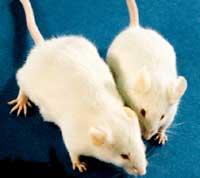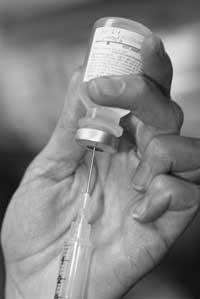In the recovery of diabetes? It has been obtained at least in the mouse
2002/05/14 Galarraga Aiestaran, Ana - Elhuyar Zientzia
Now, according to the work published in the specialized journal Journal of Clinical Investigation, a group of researchers from the Autonomous University of Barcelona has definitively recovered mice with diabetes. Although the mice used in the research were transgenic, the therapy they have developed serves to cure other diabetic mice.

Specifically, the influence of IGF-I protein on mice with type 1 diabetes has been investigated. In fact, this protein has managed to multiply beta cells that produce insulin in vitro state. It also prevents apoptosis or programmed suicide of these cells. To see in vivo this effect, mice were genetically modified so that the area cells were able to produce this protein.
The result has been optimal: The blood glucose levels of these GM mice that were active in the gene encoding the IGF-I protein returned to normal measurement, i.e., they were completely cured.
The next step will be to introduce the gene encoding the IGF-I protein in non-transgenic mice and check its effect on them. Researchers hope to achieve the same success as with transgenic mice using viruses as gene entry vectors and injecting it directly into the area. Although they have recognized that the application of this technique in humans will require numerous studies, they consider that it has taken an important step in the recovery of diabetes.

Gai honi buruzko eduki gehiago
Elhuyarrek garatutako teknologia





